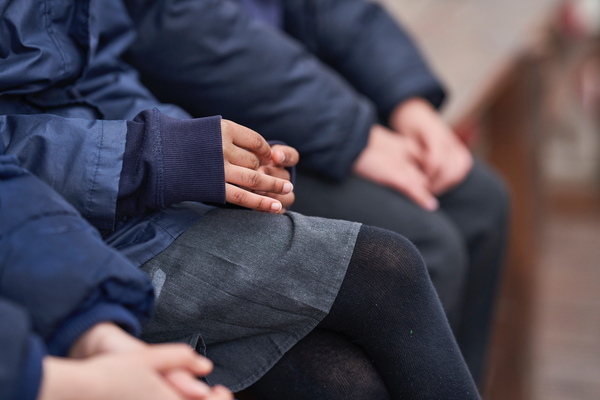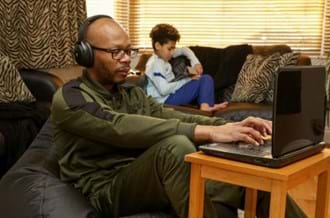Masking, Meltdowns and Misdiagnosis
Why girls with autism can miss out on identification and support.
Place2Be’s Principal Educational Psychologist for the South Julia Clements, explains the gender difference in the identification of autism and how it can affect girls both in school and at home.

We are now questioning the prevailing wisdom that autism mainly affects boys and that autism in girls is relatively rare. Autism research and diagnostic criteria tend to be based on understanding what autism looks like in boys. This potential oversight has led to misunderstanding the needs of many girls and women diagnosed with autism late or not at all.
A classic stereotype of a child with autism might be a boy who plays alone with his trains, oblivious to his peers who are playing together around him. When we observe this child, we may ask ourselves: 'Might this boy have autism?'. But what might we think about a girl sitting with her peers, talking in great detail about her favourite TV soap opera or Harry Potter book? Would you consider that this girl may have autism? Both of these children may (or may not) have autism. However, the likelihood is that we often overlook the girl talking to her peers about soap operas or books.
Why might girls with autism be overlooked? As illustrated above, the special interests of girls with autism may be more similar to those of their neurotypical(or non-autistic) classmates. However, the frequency and intensity with which they engage in that special interest can differ significantly from other girls in the class. Girls with autism can also appear very sociable, which is not what we usually expect from a child with autism. However, girls with autism are often good at rote-learning conversational phrases, imitating social behaviours and following social scripts. We can refer to this as 'social formatting', whereby girls with autism' copy and paste' from one social situation to another to try to fit in.
Girls with autism might spend much of their school day trying to hide their social communication difficulties—masking—to look like the other pupils in their class. Masking can be exhausting, which means that, at school, an autistic girl may appear to have very few difficulties and is thus under the radar of many teachers. However, at home, her parents may be trying to manage frequent meltdowns and shutdowns—for example, highly agitated or extremely withdrawn behaviour in response to feeling overwhelmed by the social demands of school. When parents describe their daughter's behaviour at home to teachers, their reports paint quite a different picture of the girl's needs.
So what can be done? Understanding the child and conveying the message that you get them is so important. Recognise and make allowances for the exhaustion and anxiety from long periods of masking to fit in. When the social demands of school become too much, be aware that what appear to be small things can cause a shutdown or a meltdown and that this will often only happen at home. Hence school staff and parents must maintain good communication and work together to identify and meet the needs of girls with autism.
At Place2Be, our Educational Psychologists offer consultations about children and young people who cause concern. We can help school staff, and counsellors consider a pupil's behaviour. Whether there may be needs, such as autism, that we should further explore. We can also offer advice and support regarding how to meet pupils' needs—whether or not they have a formal diagnosis.
This blog was written in a personal capacity and does not necessarily reflect the view of the organisation.
News & blogs

Place2Be online parenting course now available to organisations
Place2Be's online parenting course helps working parents and carers feel better equipped to manage their parenting journey.
Read more
Three charities launch wellbeing video for young carers
Three charities have joined forces to launch a new video aimed at fostering the wellbeing and creativity of young carers.
Read more
“Know Yourself, Grow Yourself”: A look back at Children’s Mental Health Week 2025
During Children’s Mental Health Week 2025, we encouraged people to embrace self-awareness and explore what it means to them.
Read more



